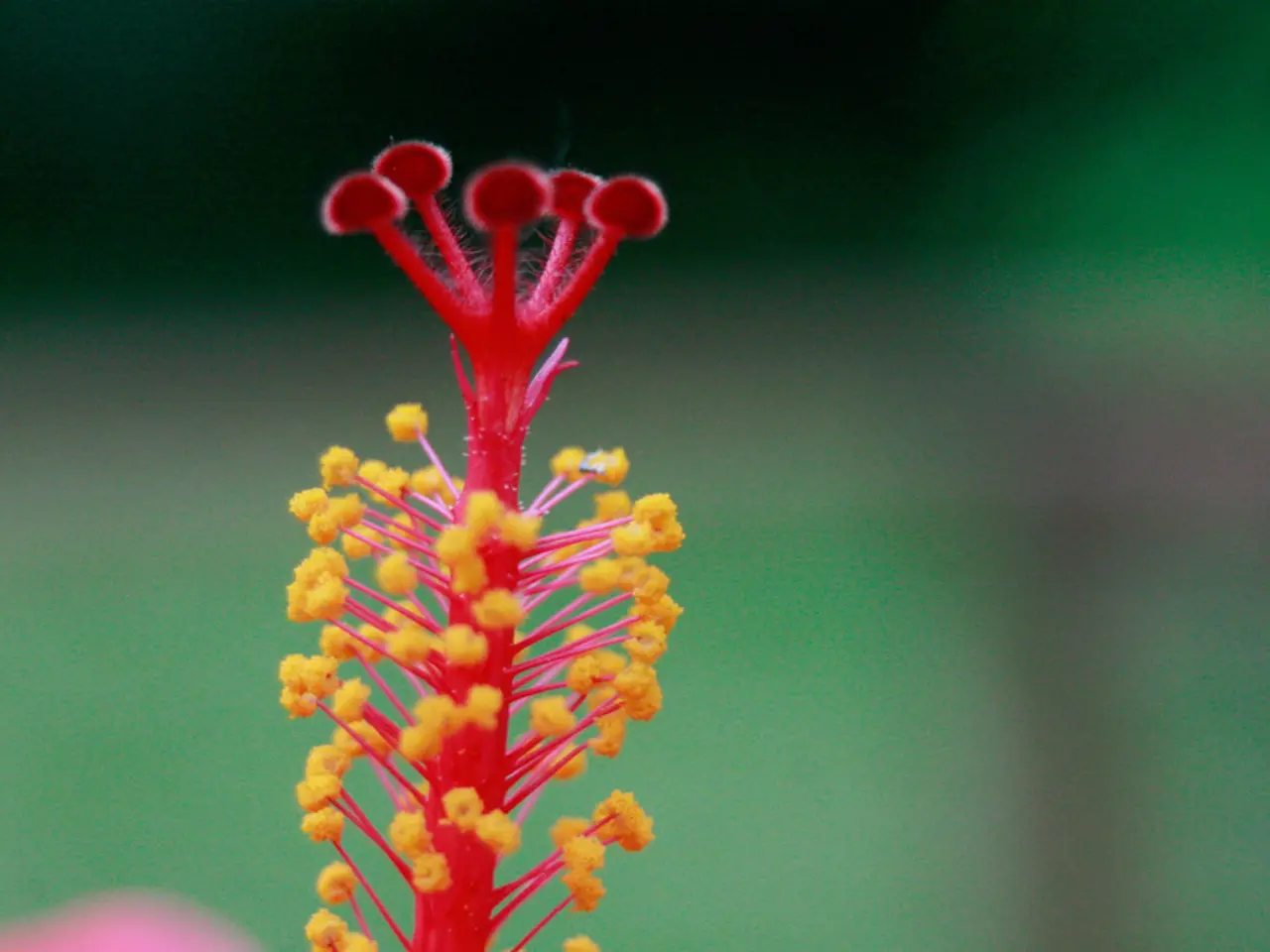Top pick for seasonal allergy treatment?
Seasonal allergies, also known as hay fever and allergic rhinitis, can make spring, summer, and fall a misery for many. But fear not, as there are various treatments available to help alleviate symptoms and improve quality of life.
Medications for Seasonal Allergies
Antihistamines are a common treatment for seasonal allergies. They block the action of histamine, a chemical released during an allergic reaction that causes symptoms like sneezing, itching, runny nose, and watery eyes. Examples include cetirizine (Zyrtec), fexofenadine (Allegra), loratadine (Claritin), and diphenhydramine (Benadryl). They are effective for relieving sneezing and itching and can be taken orally or as nasal sprays. Prescription options include azelastine nasal spray and desloratadine.
Nasal corticosteroids are another effective treatment for long-term control of nasal congestion and allergy symptoms. They reduce inflammation in the nasal passages and are best for long-term relief.
Decongestants provide short-term relief by shrinking swollen nasal tissues to ease congestion and sinus pressure. However, they are not recommended for prolonged use due to potential adverse side effects such as increased heart rate, elevated blood pressure, insomnia, and irritability.
Immunotherapy for Severe Allergies
For severe or chronic allergies, immunotherapy (allergy shots or tablets) can offer long-term relief beyond symptom management. Subcutaneous immunotherapy (SCIT) and sublingual immunotherapy (SLIT) are two forms of immunotherapy. SCIT involves weekly injections for 2-3 months until a person reaches the maximum dose, followed by once-a-month injections for the next 3-5 years. SLIT involves administering allergen sublingually, or under the tongue, daily before and during the pollen season.
Both SCIT and SLIT are effective for people with seasonal allergies. However, SCIT has better adherence rates than sublingual administration. SLIT may have more local side effects than SCIT.
Treating Specific Symptoms
Eye drops can relieve itchy, red, or watery eyes caused by pollen exposure. Saline nasal sprays help flush out allergens and keep nasal passages clear, often used alongside other medications.
Safety Precautions
In the event of anaphylaxis, a severe allergic reaction that can be life-threatening, immediate action is required. A person should check if they are carrying an epinephrine pen, dial 911 or the number of the nearest emergency department, assist the person in moving from a sitting position to lying down, stay with them until the emergency services arrive, and if necessary, use a second epinephrine injection if symptoms do not improve or come back.
Choosing the Right Treatment
The best medication for a person depends on their symptoms, personal preferences, and health. It is essential to consult a healthcare professional to determine the most suitable treatment.
[1] Ackerman, S. D. (2018). Allergic Rhinitis: Diagnosis and Management. American Family Physician, 97(10), 647-654.
[2] Jutel, M., & Murray, K. T. (2013). Subcutaneous Immunotherapy. Allergy, Asthma & Clinical Immunology, 9(1), 1-7.
[3] Kowalski, C. A., & Diez-Roux, A. V. (2015). Allergy and Immunology: Principles and Practice. Elsevier.
[4] Katz, P., & Bielory, L. (2017). The Allergist's Mate: A Clinical Guide to Allergy Practice. Elsevier.
- In the medical field, chronic diseases like allergies, such as hay fever and allergic rhinitis, are often treated with antihistamines that block histamine, reducing symptoms like sneezing and itchy eyes.
- Antihistamines are available in oral medications like cetirizine (Zyrtec), fexofenadine (Allegra), loratadine (Claritin), and diphenhydramine (Benadryl), or as nasal sprays.
- For severe or chronic allergies, immunotherapy like allergy shots or tablets can offer long-term relief, with subcutaneous immunotherapy (SCIT) and sublingual immunotherapy (SLIT) being two common forms.
- SCIT involves weekly injections for a period, followed by monthly injections, while SLIT is a daily treatment under the tongue, usually during the pollen season.
- Eye drops can help alleviate itchy, red, or watery eyes caused by pollen exposure, and saline nasal sprays can flush out allergens and keep nasal passages clear.
- Decongestants provide temporary relief by shrinking swollen nasal tissues, but they should not be used for prolonged periods due to potential adverse side effects.
- As the best medication depends on individual symptoms, personal preferences, and health, it's crucial to consult with a healthcare professional for treatment recommendations.
- When dealing with anaphylaxis, a severe allergic reaction, immediate action is required, including administering epinephrine with a pen, calling the emergency services, moving the person to a lying position, and staying with them until help arrives.
- Beyond treating allergies, mental health, skin care, nutrition, cardiovascular health, fitness and exercise, cbd, and neurological disorders are all important aspects of overall health and wellness.
- Further research in sciences like immunology, allergy, and dermatology contribute to the development of new therapies and treatments for a wide range of medical-conditions and skin-conditions, including respiratory conditions and neurological disorders.




